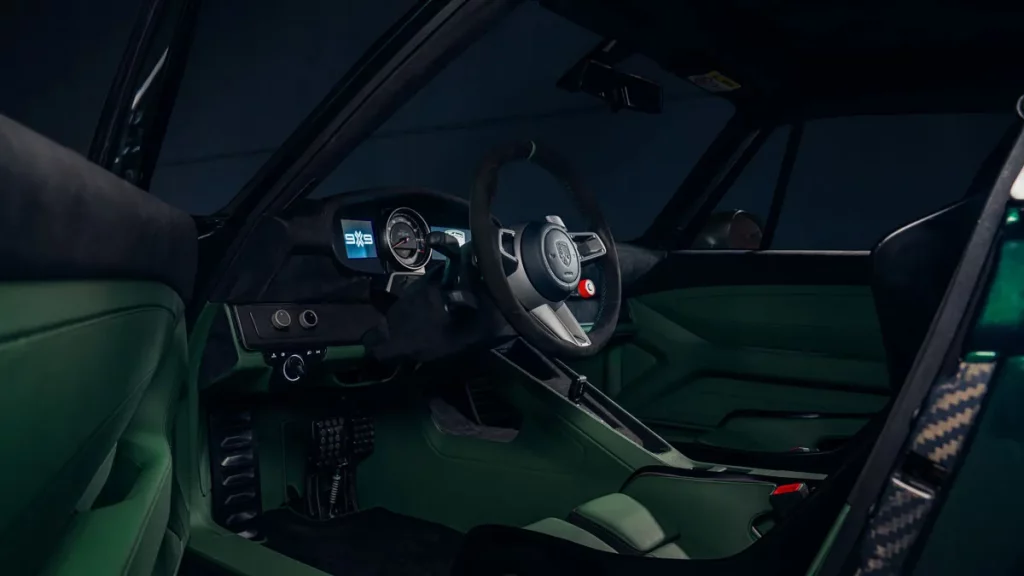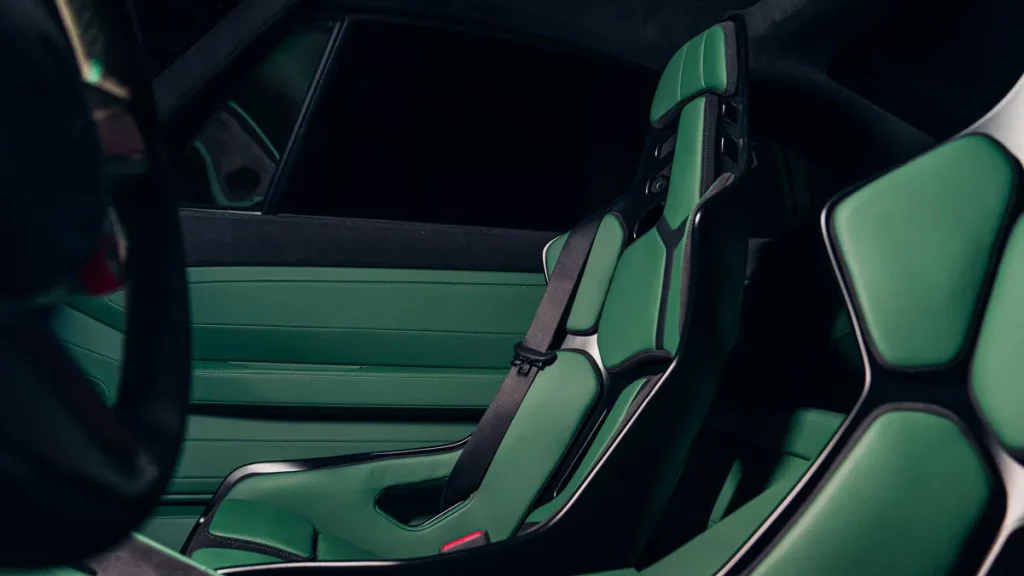The Kalmar 9×9 transformation starts at around €1.9 million (plus donor vehicle), with the first customer delivery planned for next July.
It’s not like the Porsche 911 was ever lacking fans, but the past decade has seen a firestorm of interest never imagined in the “glory days” of ducktail spoilers and mechanical fuel injection. As the German marque continues to dangle a never-ending stream of “investment-grade limited editions” in the shameless profiteering spirit of the Franklin Mint, more enterprising firms aim to “reimagine” the classic air-cooled 911 in any number of authentic ways.
“Reimagining,” of course, is a discreet way of not being sued by the brand’s trademark attorneys, eager to keep the spoils of 911 interest for themselves. That hasn’t stopped eager, well-heeled enthusiasts from lining up for restomods from Singer Vehicle Design, Gunther Werks, and others, each offering a bespoke “don’t-call-it-a-911” transformation that really does reenvision what the original 911, 964, and 993 could have been if today’s technology was available decades ago. And then there’s the Porsche 959, a 1980’s icon that looks kinda-sorta like a 911 but ushered in turbocharging, all-wheel drive, adaptive suspension, and all number of advancements that were revolutionary at the time.

Kalmar Automotive made the global debut of its new 9X9 project at The Quail, a Motorsport Gathering in August. We dug into the details of what Kalmar describes as a “retro hypercar” with company founder Jan Kalmar, a stubbornly persistent Dane who elaborated (in engineer-speak) on the underpinnings of perhaps the most radical 911-inspired interpretation ever. Unlike other restomod versions of Porsche’s icon, the 9X9 is a tale of two 911s, one old and one new.
The VIN, or heart of the 9X9, is an example of the Porsche Type 993 (built from 1994 through 1998), whose chassis, such as it is, becomes the donor for the new, proportionally enlarged (if only slightly) creation with a wheelbase two inches longer than a 993 but five inches shorter than a 992. Aerodynamics are top of mind, the car developing more than 3,000 pounds of downforce and featuring a Cd of 0.39, close to that of the McLaren Senna. The body is notable for its lightness, strength, and shape, respectfully referencing the 959 while incorporating contemporary styling cues from the latest 992 model variants. The full carbon-fiber body weighs less than 220 pounds and is made from more than 128 parts, including window frames.

Designed as an ultimate GT car, the Kalmar 9X9 is powered by the 3.8-liter, flat-six turbo engine from the latest Porsche 911 Turbo. The mill produces 930 hp and is paired with a double-clutch transmission and an active all-wheel-drive system transferring power to the ground via the adaptive suspension and rear-wheel steering. Kalmar’s commitment to lightweight engineering solutions is evident everywhere, with purpose-built components weighing in at far below industry standards.
Brake partner CarboBrake has developed 3-D-printed lightweight titanium brake calipers that grip mightily, reduce unsprung mass, and probably cost more than a new Carrera. Ceramic discs and ancillary systems, including the full wiring loom and traction-control system, are taken from a donor 992. The custom double-wishbone pushrod front-axle suspension—using Tractive shock absorbers—is designed by Danisi Engineering in Italy, while Kalmar-designed, superlight magnesium wheels wear Michelin tires. Kalmar’s performance formula projects a Nürburgring lap time of seven minutes flat in full-size simulations.

The minimalist interior presents a traditional analog tachometer along with LCD screens that provide other necessary information. A navigation system and stereo are absent, but Bluetooth connectivity is available from any modern device. Lightweight seats are personalized to driver and passenger, while a hidden roll cage functions as a full spaceframe for added stiffness and competition-level safety.
Kalmar offers two other versions of the 9X9. The more driver-focused 9X9 Sport is powered by a 650 hp, 3.0-liter turbocharged engine with a seven-speed manual transmission and variable all-wheel drive. The Kalmar 9X9 Leichtbau (Lightweight) version uses the high-revving, naturally aspirated 4.0-liter engine from the 911 GT3, which combines with a six-speed manual gearbox powering only the rear wheels. The purest of the 9X9 variants, the latter has all of the interior embellishments removed to achieve a weight of only 2,750 pounds.

Each Kalmar Automotive conversion is made to customer specifications over a period of 10 to 12 months. No two vehicles will be duplicated, and the first customer delivery is planned for July 2025. The Kalmar 9X9 is available to order in the U.S. through Canepa Group, Inc., whose reputation as the world authority on the Porsche 959 suggests high praise for the Kalmar 9X9. Prices start from around €1.9 million (plus a donor 993), with the Leichtbau adding about €200,000 to the cost.






